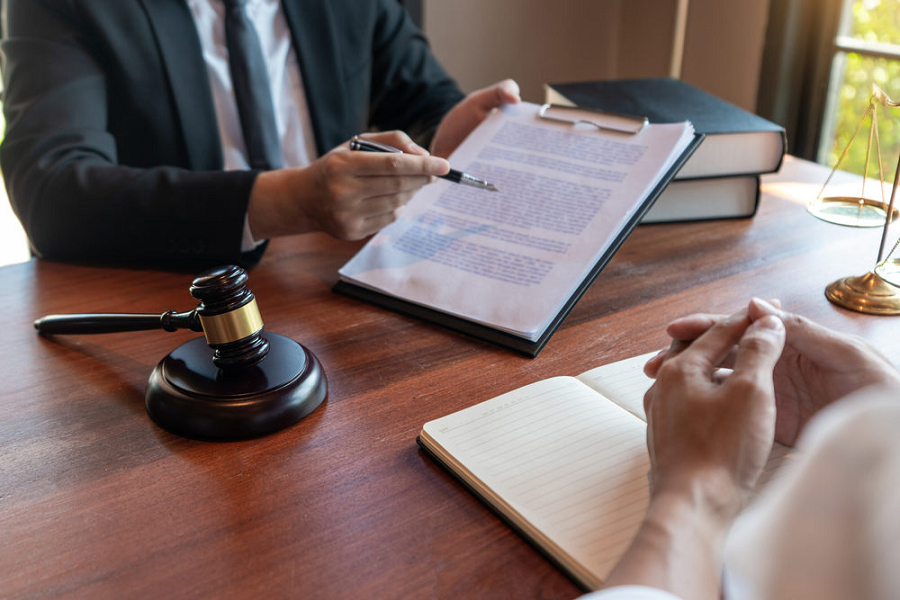Finding the Best Lawyer in 2024

Specialization and Practice Areas
In the legal field, attorneys often focus on specific areas of law, much like doctors specialize in certain medical fields. For instance, this law firm is renowned for its specialization in mesothelioma cases. This specialization allows lawyers to gain in-depth knowledge and experience, which can be crucial for complex legal issues.
General Practice vs. Specialist Lawyers
When choosing between a general practice lawyer and a specialist, consider the nature of your legal issue. General practitioners can handle a wide range of legal matters, but may not have the depth of knowledge in a particular area. On the other hand, specialists like those at Simmons Hanly Conroy have honed their skills in a specific legal niche, offering expertise that can be particularly beneficial in intricate or uncommon cases.
When to Choose a Boutique Law Firm
Boutique law firms often focus on a limited number of practice areas, providing personalized service and detailed attention to their clients’ cases. They are typically smaller and can offer a more intimate client experience. When facing specialized legal challenges, such as mesothelioma litigation, a boutique firm with a strong track record in that field can be a valuable ally in securing justice and results for their clients.
Factors to Consider When Selecting a Lawyer
Selecting the right lawyer is a critical decision that can significantly impact the outcome of a legal matter. There are several key factors that individuals should consider to ensure they choose a lawyer who is well-suited to their specific needs.
Experience and Track Record
- Look for a lawyer with a proven track record in handling cases similar to yours.
- Consider the number of years they have been practicing, as well as their success rate in previous cases.
- Inquire about any special recognitions or awards they have received in their field.
Communication and Availability
- Assess the lawyer’s willingness to communicate openly and frequently.
- Ensure they are available to address your concerns and provide updates on your case.
- A lawyer who is responsive and accessible can make a significant difference in the client experience.
Legal Fees and Billing Practices
- Understand the lawyer’s billing practices, including their fee structure (hourly rate, flat fee, or contingency basis).
- Ask for an estimate of the total costs, and whether there will be any additional charges for expenses.
- Transparency in billing is essential to avoid any surprises down the line.
Client Testimonials and Reviews
- Read through client testimonials and online reviews to gauge the lawyer’s reputation.
- Look for patterns in feedback that indicate the lawyer’s strengths and weaknesses.
- Remember that while reviews can be informative, they should be one of many factors considered in your decision-making process.
The Importance of Compatibility and Trust
Finding the right lawyer is not just about expertise and experience; it’s also about compatibility and trust. The relationship between a lawyer and their client is pivotal to the success of any legal matter. Clients should feel comfortable sharing sensitive information and confident in their lawyer’s commitment to their case.
Assessing Your Comfort Level with the Lawyer
When meeting with potential lawyers, clients should pay attention to how the lawyer communicates and whether they show genuine interest in the case. It’s important to:
- Ensure the lawyer listens attentively and understands your concerns.
- Observe if they provide clear and concise explanations without excessive legal jargon.
- Gauge their willingness to discuss your case in detail and answer your questions.
The Role of Personal Values and Ethics
The alignment of personal values and ethics between the lawyer and client can significantly impact the working relationship. Clients should consider:
- The lawyer’s approach to legal issues and whether it resonates with their own moral compass.
- The firm’s reputation in handling cases with integrity and ethical consideration.
Building a Collaborative Lawyer-Client Relationship
A collaborative relationship is essential for navigating the complexities of legal proceedings. To foster this partnership, clients and lawyers should:
- Establish clear communication channels and regular updates.
- Set mutual expectations for the case’s progression and potential outcomes.
- Work together to develop a strategy that aligns with the client’s goals and legal rights.
In the quest for the best online legal services for 2024, platforms like LegalShield, Avvo, LegalZoom, FindLaw, Rocket Lawyer, and Incfile stand out. These services offer cost-effective, 24/7 support, and tailored solutions for various legal needs, reflecting the evolving landscape of legal assistance.
Utilizing Online Resources and Referrals
In the digital age, finding a lawyer can be as simple as a few clicks. However, the convenience of online resources comes with the need for careful navigation to ensure the selection of a reputable and suitable legal professional. Navigating Online Legal Directories can be a starting point, offering a plethora of information on lawyers’ backgrounds, specializations, and locations. It’s important to use reputable directories that verify the credentials of the listed lawyers and provide clear, unbiased information.
When it comes to The Value of Personal Referrals, nothing beats the tried-and-true method of word-of-mouth recommendations. Personal referrals from friends, family, or business associates can provide insights that are not available online, such as the lawyer’s responsiveness and demeanor. It’s essential to consider the context of the referral and ensure the recommended lawyer specializes in the relevant area of law.
Reading Between the Lines of Online Reviews requires a discerning eye. While online reviews can be informative, they can also be misleading or biased. Look for patterns in the reviews rather than isolated comments, and consider the source of the review. It’s also beneficial to read responses from the lawyers to reviews, as this can give an indication of their professionalism and approach to client feedback.
Preparing for the Initial Consultation
Questions to Ask a Prospective Lawyer
Before meeting with a lawyer, it’s crucial to prepare a list of questions that will help you gauge their expertise and suitability for your case. Consider asking about their experience with similar cases, their approach to legal strategy, and their expected timeline for resolution. Inquire about who will be handling your case day-to-day and how they will communicate updates to you.
- Experience with similar cases
- Approach to legal strategy
- Expected timeline for resolution
- Day-to-day case handling
- Communication methods
What Documents to Bring
Arriving at the initial consultation with the necessary documentation can expedite the process and give the lawyer a comprehensive view of your situation. Bring any relevant legal documents, correspondence, and evidence that pertains to your case. This may include contracts, emails, medical records, or police reports. Having these items organized and readily available will assist in a productive consultation.
- Legal documents
- Correspondence
- Evidence
- Medical records
- Police reports
Understanding the Legal Strategy and Process
Gaining clarity on the legal strategy and process is essential during the initial consultation. Ask the lawyer to outline the steps they plan to take and what the legal proceedings may entail. Understanding the potential challenges and how the lawyer plans to address them can provide peace of mind and set realistic expectations for the journey ahead.
- Outline of legal steps
- Explanation of legal proceedings
- Potential challenges
- Lawyer’s plan of action






